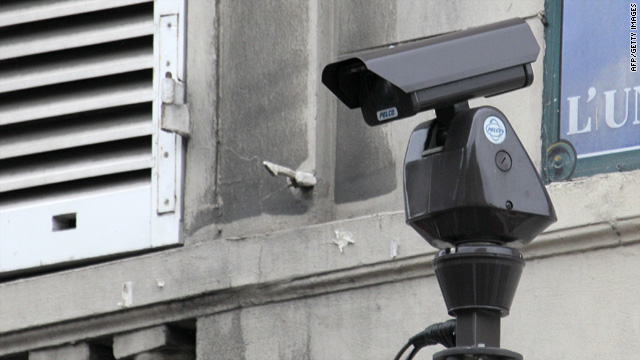Potential Security Concerns As Kenya Gears Up To Install Security Cameras
Over the past one year, Kenya has witnessed some atrocious terrorist attacks especially in its two largest cities of Nairobi and Mombasa. These two cities have borne the brunt of a spate of gun and grenade attacks from Somalia’s Islamist extremist militia al-Shabaab. In a move to beef up security, the government of Kenya gave the country’s largest mobile operator Safaricom a contract to install security system at a cost of $165.2 million.
The terms of the contract are that the telecom will install and run a communication and surveillance system linking police stations. The security system will initially be rolled out in Nairobi and Mombasa. This decisive measure to improve police surveillance by the Kenyan government has been welcomed by many. However, critics question the move to award a telecom company that is 40 percent owned by another foreign company (Britain’s Vodafone) with matters touching on national security.
But let’s not dwell so much on that and focus on another potential security threat that may develop when the security system is installed. Bob Collymore, the CEO at Safaricom, said it would take the telecom 18 months to have the project up and running. At the end of November, Kenyan authorities arrested 77 Chinese nationals most of whom were believed to have been in Kenya illegally. They were arrested because they were believed to be “preparing to raid the country’s communication systems.”
 The 77 Chinese nationals were illegally residing in an upscale neighborhood that happened to be located near the US Embassy and the UN headquarters. Whether that is purely coincidence or a strategized move, you be the judge! The Kenyan police raided their premises and confiscated advanced communication equipment.
The 77 Chinese nationals were illegally residing in an upscale neighborhood that happened to be located near the US Embassy and the UN headquarters. Whether that is purely coincidence or a strategized move, you be the judge! The Kenyan police raided their premises and confiscated advanced communication equipment.
The Daily Nation reported that in the raid, police obtained sophisticated communication equipment believed to be capable of infiltrating government servers, bank accounts, Safaricom’s M-Pesa services and ATM machines.
The Director of Kenya’s Criminal Investigation Department, Mr. Ndegwa Muhoro was quoted saying: “The suspects are being interrogated to establish their mission in the country and what they wanted to do with the communication gadgets… We have roped in experts to tell us if they were committing crimes of espionage.”
Must Read: Is China conducting espionage operations in the Caribbean under the guise of Aid?
That got me thinking; could the planned installation of security system by Safaricom be ushering a new era of terrorism attack in Kenya? The security system will entail using internet security cameras, wireless communication devices and police server networks. If proper cyber security measures are not put in place, hackers under terrorist’s payroll could leak out information that would go a long way in better coordinating terrorism activities or aid in evading the law enforcement authorities.
If the internet security cameras are not properly configured then the police department will not be the only ones watching. For years, hackers have been surfing the internet looking for vulnerable cameras online, sometimes it is as easy as running a Google search. It would be very ironical if we install cameras to make our country safer, only to turn out that anyone with a smartphone, tablet or laptop computer can also use the cameras by hacking into them.
Putting up usernames, passwords and advanced firewalls to the police network would be a good place start to securing the internet security cameras. The username and passwords should also be not easy to guess and regularly changed. Next since the cameras are sending video images through a network, potential security breaches are not just with the cameras. The routers and video networks also need better cyber security measures in place. The video signals themselves need to be highly encrypted otherwise it would be easily intercepted along the way.
Safaricom will install a 4G LTE network specifically dedicated to this project. Well, it obvious it would be cumbersome for the cameras to use a wired network, but given the vulnerability of signals transmitted wirelessly better wireless network security ought to be in place. It is much easier to intercept a signal sent over Wi-Fi network compared to signal transmitted on a wired network.
In the word of the Kenyan President, security starts with you as a citizen. You should also beef up security on your internet enabled devices. Take for instance, your webcams on the laptop and desktop computers can be used by hackers for spying. Internet security experts advise that when you are not using your computer’s camera, you should disable it or better yet cover the lens.





